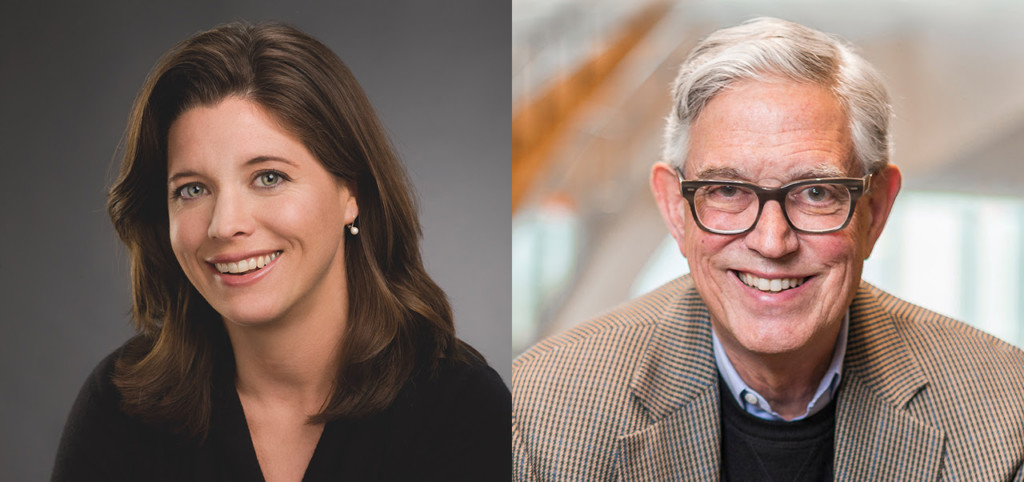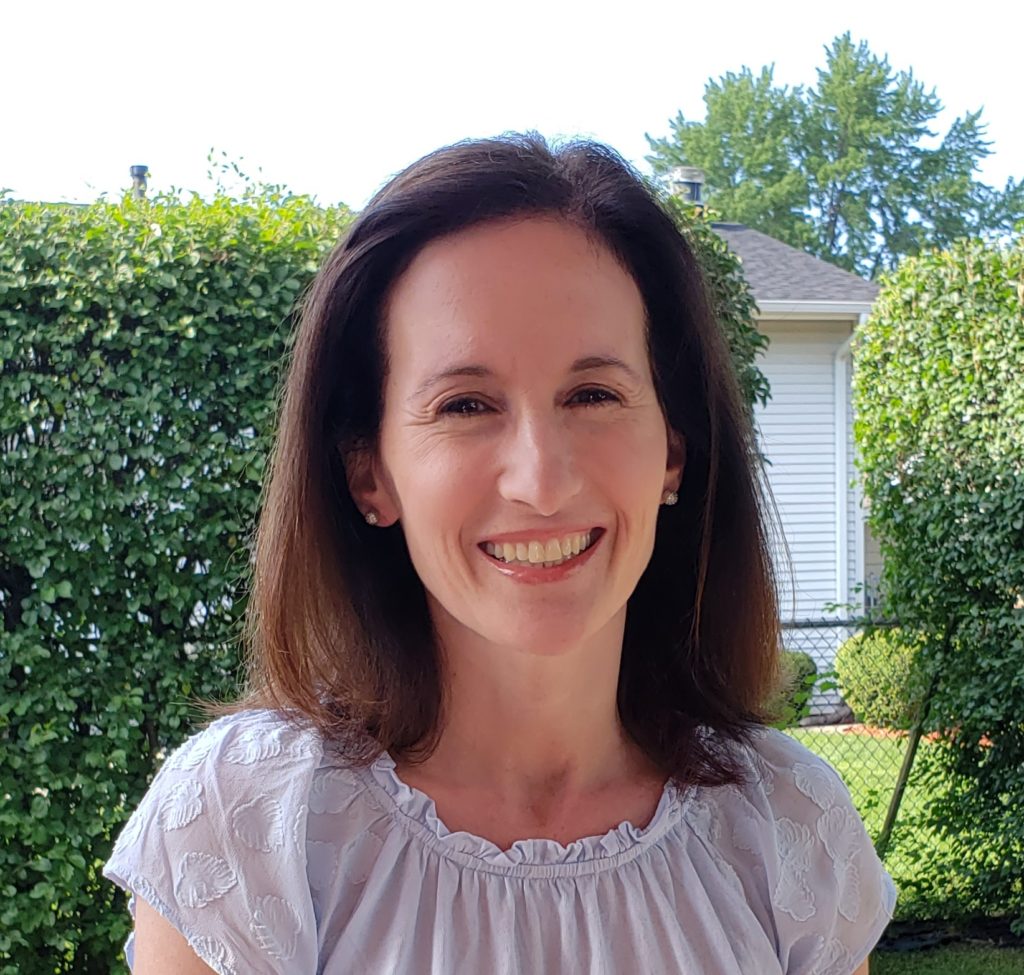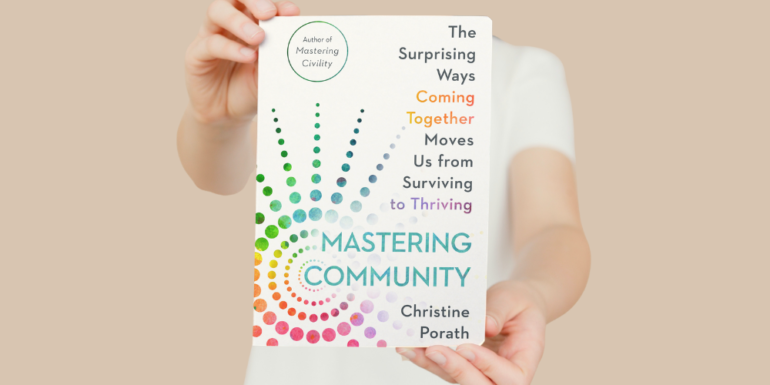A year after Christine Porath, Ph.D. pitched a book about the power building connections with other people has to cure loneliness and isolation, an unexpected plot-twist occurred: the pandemic hit and people were forced to isolate and became lonely. Porath included.
She wrote a majority of that book, “Mastering Community: The Surprising Ways Coming Together Moves us from Surviving to Thriving,” in 2020 and completed it last spring. In some ways, the isolation of the pandemic provided focus: She felt like she was working in a small bubble with few distractions. But it coincided with the busiest time of her teaching career at Georgetown University. What kept her going was knowing the case studies of everyday citizens, NBA championship coaches and entrepreneurs featured in the book, to highlight the ability one person has to make a difference in the lives of many, would inspire readers. One case study in particular was personal and gave Porath the idea for the book.
When her 2-year-old niece was diagnosed with a rare chromosome disorder, her brother Mike and his wife were dissatisfied with the information they received from doctors. With nowhere else to turn, they sought answers to their questions online from other parents and gained more than helpful advice: the connections they formed were a cure for the loneliness and isolation brought on by the situation.
In 2014, Mike launched The Mighty, a digital media company that connects people facing health challenges and disabilities through honest, powerful and shareable stories. Today, The Mighty has millions of members across the globe.
“It’s a wonderful story of what can be done to help people when you do take some risks and start with a small group and try to master community,” Porath said during a virtual Q&A April 21 sponsored by Family Action Network and The Book Stall. “Coming together and trying to connect is an important topic for today, to help move us from surviving to thriving.”

The timely discussion was moderated by Douglas R. Conant, founder and CEO of ConantLeadership, former president and CEO of Campbell Soup Company, former president of Nabisco Foods, and former chairman of Avon Products. He was featured in Porath’s first book, “Mastering Civility: A Manifesto for the Workplace” and co-authored an article with her on the subject for the Harvard Business Review.
“Whether you’re starting a program on weekends, like weekend warriors or doing something for the community like Habitat for Humanity or any cause you chose,” Porath explained, “you can start with a small group, flourish together and thrive.”
Anyone can do it, she said. But first, you need to improve upon these four areas:
Self-Awareness
Concentrate on it before anything else. Ninety-five percent of people think they’re self-aware but only 10 to 15 percent are. Figure out what you need to work on. It will affect how you interact with others and your ability to make the changes you’re striving for.
Physical Well-Being
Focus on movement. Our body is like a pharmacy that fuels us with hope molecules when we move. We get an amplifier effect when we’re in community. Taking care of our physical well-being is great on our own, even better if you do it with others.
Recovery/Overcoming Burnout
When we lack sleep it’s like a social repellant. Lose an hour of sleep and people pick up on it. It repels them from us in ways that harm community and collaboration. The really sad thing is if they pass it on to others. There’s a contagious aspect of it.
Mindset
You can control what you can control. Concentrate on the next play. Don’t be hijacked by past mistakes, issues, bad calls or woe is me. Instead, think, “What can I do in this next step to help us achieve our goals?
How to Help:
Family Action Network events are free and open to the public. Donate to Family Action Network to help make this ongoing free programming possible.

More from Better:
- Op-Ed: Is College Really the Best Path for Your Child?
- How Unstoppable Could Chicago Be? We Rise Together Is Helping Speed Economic Recovery in Black and Latinx Communities
- Kenilworth Union Church Donates $1 Million to Chicago Nonprofit By The Hand

Melanie Kalmar is a freelance journalist specializing in business, healthcare, human interest and real estate. When she’s not writing, she enjoys spending time with her family.

